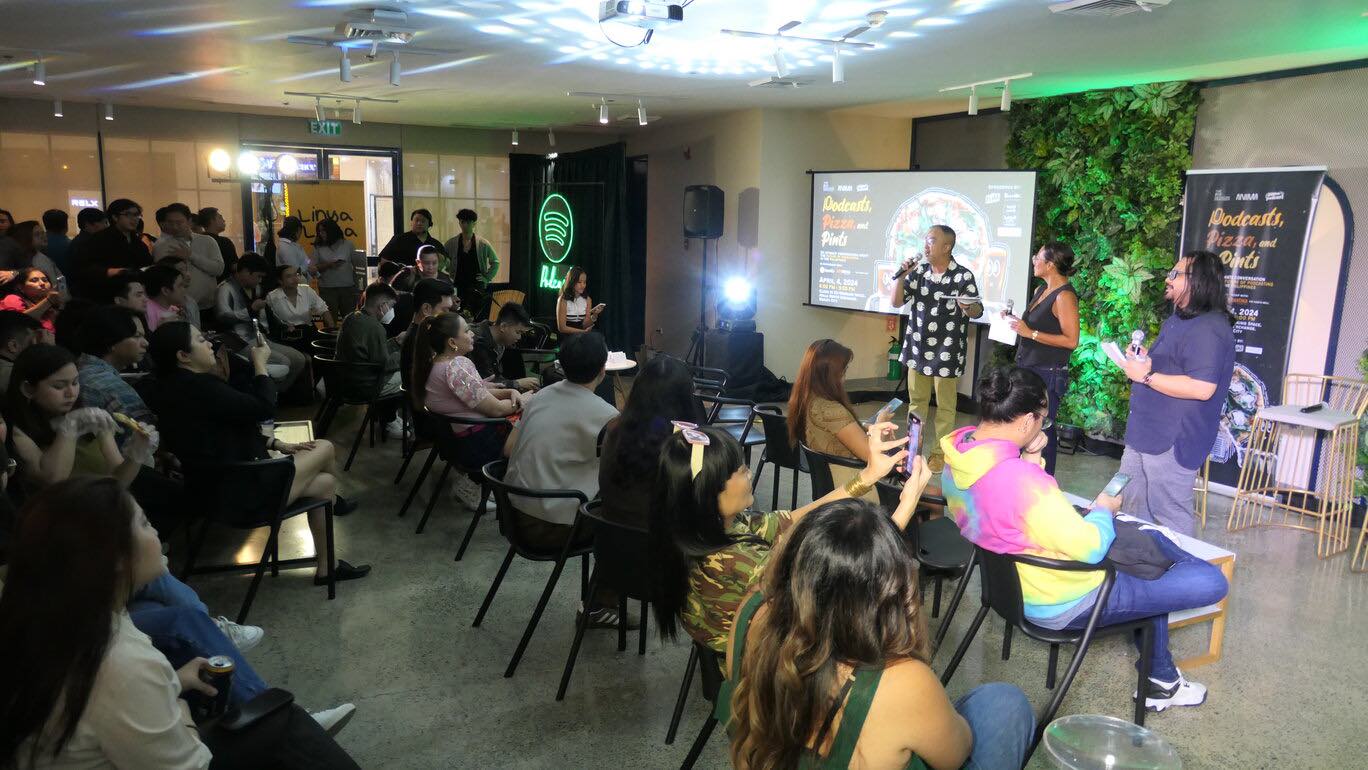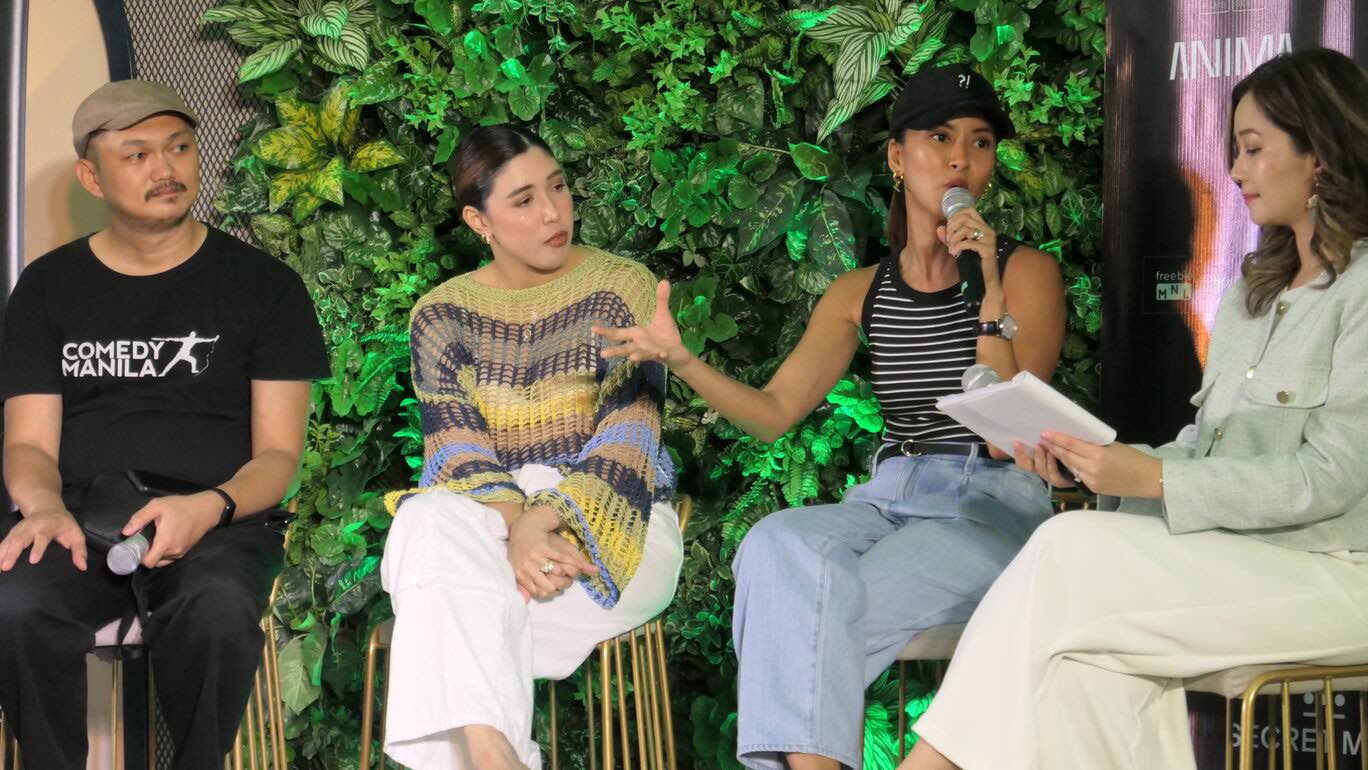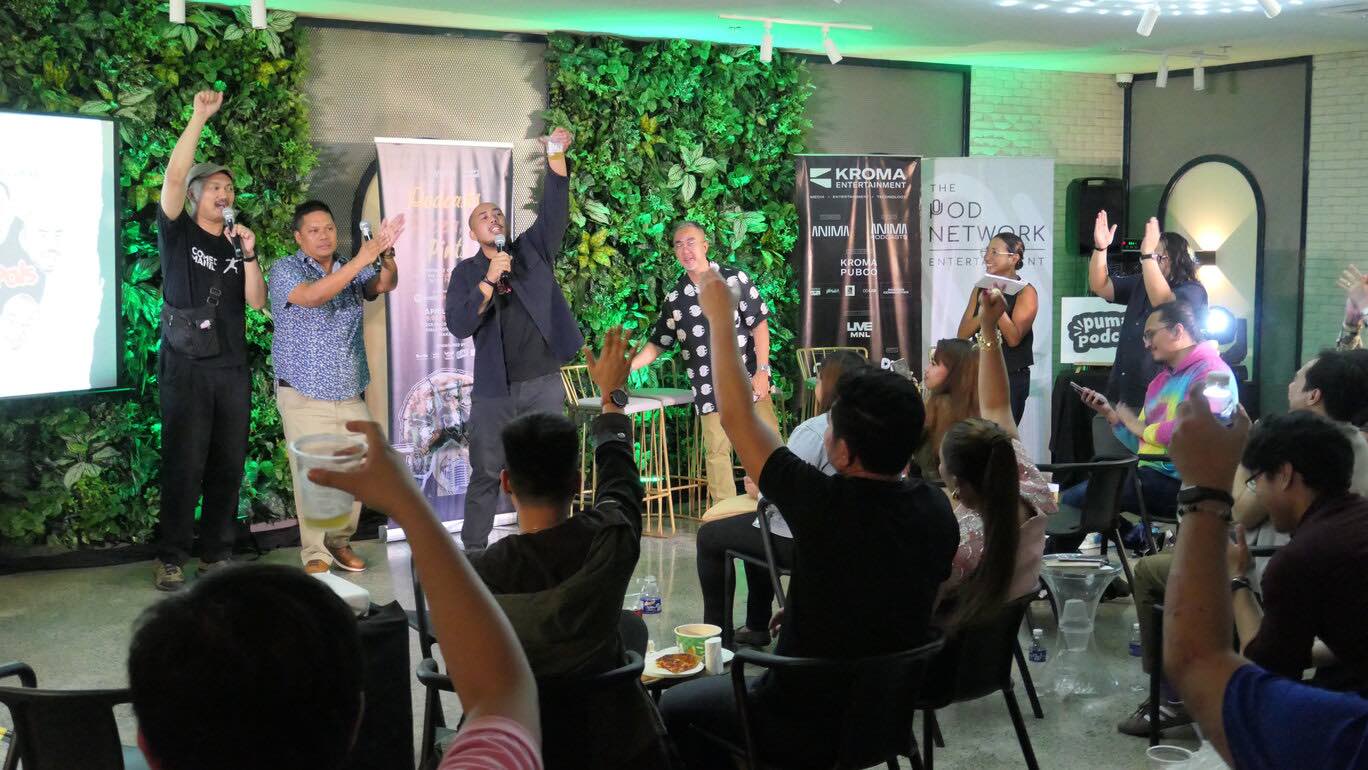TIPS: How to create a successful podcast
Podcasts are a great way to access specialized knowledge from across a wide variety of topics, regardless of esoterica or niche appeal. From true crime and comedy, to news, sports, and entertainment, there are pods for every demographic and interest you can think of—and many, many more that you probably wouldn’t.
A large part of podcasts’ popularity is the relative ease and passiveness with which they can be consumed. According to Anima Podcasts chief Mel Lozano Alcaraz, the medium's audio-based format encourages "leaning out" consumption, versus "leaning in," noting, "It’s not like blogs or social media where you’re actively scrolling through your feed—[with] podcasts, you press play, you can do laundry, cook, work out, work—the companionship [between host and listener] is there."
According to a Forbes report, pods grew in popularity during the COVID-19 pandemic as the world scrambled for content during the global lockdowns. With smartphones and internet access growing increasingly more affordable, the number of listeners has only continued to climb. In the Philippines, the impact of podcasts can be seen in the sheer number of local content creators, TV hosts, and entertainers who’ve begun recording pods in hopes of expanding their respective media footprints.
The significance of the local podcast market was the main topic of discussion at the recently concluded Podcasts, Pizzas, and Pints event in Makati. Organized by The Pod Network, Anima Podcasts, and PumaPodcast, the event featured a roundtable discussion on research firm The Fourth Wall’s recent study on podcast listeners in the country, as well as case studies for those who are looking to break into the medium.
Speaking with PhilSTAR L!fe, The Pod Network CEO and co-founder Alan Fontanilla said, “Before initiating the research, I was somewhat skeptical that its findings would offer any groundbreaking insights to myself, brands, or agencies. What genuinely surprised me, adding a significant 'wow' factor, was the discovery of the diverse range of podcast listeners.”

Clearly, the timing has never been better for those who are looking to jump into the world of podcasting, as The Fourth Wall’s research revealed a hitherto unknown cross section of eight unique personality types among Filipino podcast listeners, ranging from idealists and romantics, to sophisticates and high-level intellectuals. The study also revealed that up to 20% of young Pinoys (mainly millennials or Gen Ys) consume an average of 2.2 hours of podcast content daily.
Want to start a podcast soon? Here are some tips you should keep in mind to make your channel successful.
Know if podcasting is for you
While the future is indeed bright for Philippine pods, Alcaraz reminded aspiring podcasters that there are multiple factors to consider before making the leap. “People always ask me if content creators really need a pod. I say, yes, creators really need a pod. [But] not every creator can be a podcaster, and not every podcaster can be a content creator," he said. "But if you’re in that sweet spot na madaldal ka, matalino ka, you have advocacies, you’re charismatic, and you want to be a multi-hyphenate platform creator, [then] podcasting is definitely for you.”
Own your niche
There are thousands upon thousands of pods from which you can take inspiration, covering a multitude of subjects. That being said, the best way to stand out from the crowd is to select a subject you can be a credible authority in or, at the very least, have a unique point of view or perspective on. This was certainly the case for Bianca Gonzalez’ popular Paano Ba To?, a dedicated guide to mental health featuring topics that traditional media rarely tackles. By providing listeners a safe space they could turn to, the host and podcaster said she was able to build her audience.

Always be authentic
In an age when some influencers are all too happy to say anything they’re paid to through their social platforms, podcasts have grown into Pinoys’ third most-trusted source of information, garnering a remarkable 3.70 (out of 5) trust level. That kind of trust, according to TV personality and podcaster Joyce Pring (Adulting with Joyce Pring), is only achievable by being as authentic as possible. Given the inherently intimate nature of the host-audience relationship—with listeners regularly tuning in for anywhere from thirty minutes to two hours—any sort of disingenuous brand talk or inorganic sponsorships could be seen as a betrayal.
Embrace your audience
Audience loyalty can be massively rewarding, as shared by speaker GB Labrador about his show, The KoolPals, whose listeners have evolved from offbeat comedy fans into a full-blown community, replete with in-jokes, celebrations, and audience participation. Now, whenever listeners encounter Labrador, his co-hosts, or even each other in public, referring to each other as “KoolPals” in person makes for an instant ice-breaker. Similarly, Ceej Tantengco-Malolos of breakthrough series Go Hard Girls, a pod on Pinay athletes, said she has shown that curating content for a specific niche audience can likewise generate an impressive following, with multiple sportswomen now proudly declaring themselves as “Go Hard Girls.”

Put in the work
Perhaps the most important thing to remember is that becoming a pod success takes a lot of work, as Labrador shared that getting The KoolPals to its current status as one of the country’s top comedy pods took five years and hundreds of episodes to achieve. At the end of the day, a good topic, unique voice, and authenticity are all good and well, but they pale in comparison to applied consistency and the tenacity to keep going.
“We have been through COVID, the collapse of so much traditional media, but we are all still here, and it shows both the resilience of the medium and the people who are building in it,” PumaPodcast CEO Carl Javier told L!fe.
While not everyone can lay claim to huge sponsorships, branded content deals, and/or legions of fans, it’s important to remember that even the biggest pod successes had to start somewhere. Now what do you say about that?


